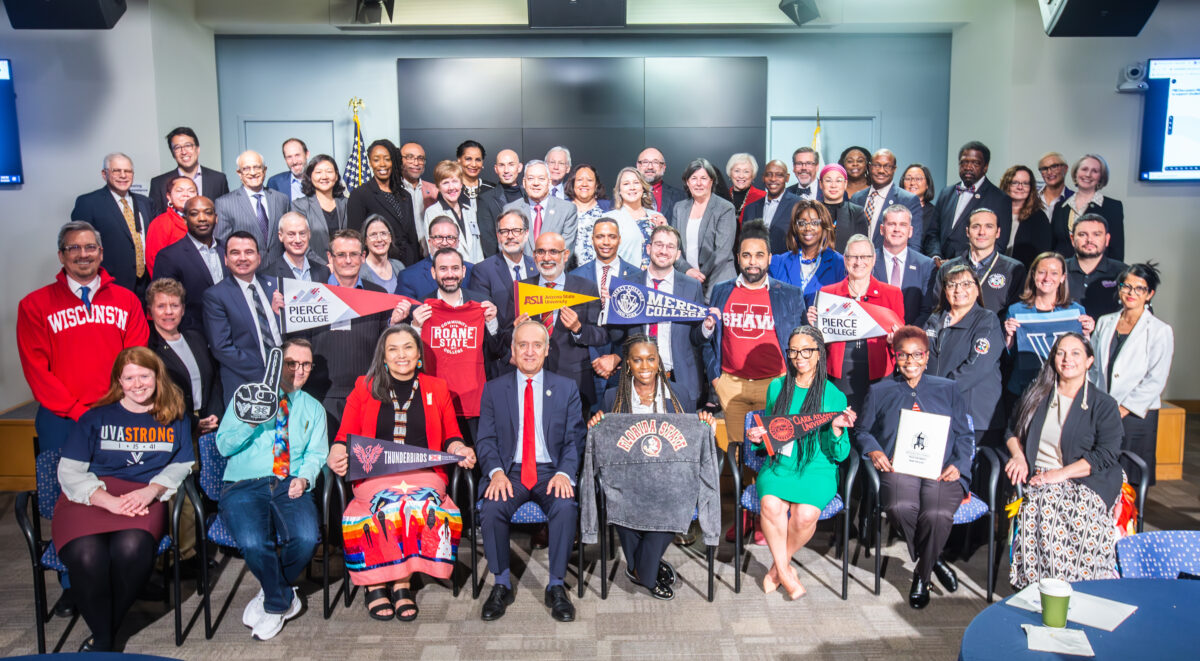Senate Appropriators (Again) Direct Department of Education to Keep Vital Student Aid Study Intact
Published Aug 05, 2024
Senate appropriators just sent a clear message to the U.S. Department of Education (ED): do not reduce the frequency of the National Postsecondary Student Aid Study (NPSAS). The message was delivered via the bipartisan fiscal year 2025 funding bill for the agency released late last week. The Senate Appropriations Committee, which passed the bill, reemphasized a prior directive that supports evidence-driven policymaking in higher education. That directive in the fiscal year 2024 federal funding bill required the Institute of Education Sciences (IES), housed at ED, to maintain NPSAS at its traditional collection frequency: the full-scale study, including detailed student surveys, every four years and an administrative data collection every two years. Ever evolving student experiences in higher education, such as pandemic-related disruptions and recent changes to the financial aid process, make maintaining the current NPSAS data collection frequency vital.
The original directive came on the heels of the Biden-Harris administration’s proposed fiscal year 2025 budget released in March, which included a proposal to shift the NPSAS full-scale study from every four years to every six years and the administrative data collection from every two years to every three years. Recently, ED indicated it still plans to reduce the NPSAS collection frequency due to resource constraints. These planned reductions in frequency threaten to weaken our understanding of student experiences in higher education.
NPSAS is the most comprehensive study measuring how students and their families pay for college, as well as students’ characteristics and other aspects of their postsecondary experience. The study connects multiple data sources, including detailed student surveys and administrative data from colleges and government databases, such as enrollment records and financial aid disbursements. Importantly, NPSAS enables follow-up surveys so that students’ experiences and outcomes can be assessed over time. In the 2019-20 NPSAS, about 100,000 students shared information about their educational experiences, financial background, military status, food security, employment while enrolled, and other topics via the student survey. Unlike other studies, NPSAS data are nationally representative and can be broken out by a range of student characteristics, such as race, ethnicity, gender, dependency, care-giving status, and financial background.
Timely data help policymakers, researchers, institutions, and other stakeholders better understand student experiences and answer questions including: How easily can students with the lowest incomes and students from specific race and ethnic groups afford college? How does enrollment by institutional sector vary by race, ethnicity, and income?
We applaud the Senate Appropriations Committee, specifically Labor HHS-Education Subcommittee Chair Sen. Tammy Baldwin (D-WI) and Ranking Member Sen. Shelley Moore Capito (R-WV), for reiterating the prior Congressional directive and for directing the agency to brief the Committee on how it plans to comply. We strongly urge House and Senate appropriators to maintain this language in the final fiscal year 2025 federal funding bill. Conducting these essential studies requires resources. We also urge appropriators to provide additional funding to the National Center for Education Statistics to carry out this critical work.
We will continue monitoring the agency’s NPSAS plans and working to protect and preserve other postsecondary sample studies administered by IES. We appreciate the collective efforts of advocates, researchers, and federal policymakers who recognize the importance of robust data in shaping higher education policy. In December 2023, IHEP led a coalition of nearly 50 organizations and researchers in urging ED to protect and preserve critical IES postsecondary sample studies.
Comprehensive data collection strengthens the evidence base used to inform policies and practices that support college access, affordability, and success for all students.


